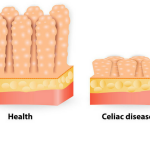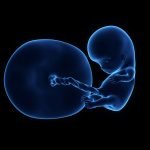Transgender No Longer a “Mental Disorder,” and Other ICD-11 Changes
Node Smith, ND
The WHO met last week for its week long annual meeting, which included approval of the ICD-11 coding system. The most overarching component of the new system will be its online accessibility, which is intended to create consistency in diagnosis and assessment across the globe.
Just when you thought that you’d figured out ICD-10 coding
Because of its inclusive nature, the ICD-11 will include traditional medical systems, such as Chinese medicine. This is a huge step, considering millions of people use traditional medicine worldwide, though it has never been recognized by this classification system. There are other changes and additions that some will be glad to begin using.
The WHO will no longer categorize transgender as a “mental disorder”
The WHO will no longer categorize transgender as a “mental disorder.” This will be reflected in the ICD-11 manual. The official language will change from “gender dysphoria” to “gender incongruence.” This diagnosis will be listed under the classification chapter on “sexual health” rather than “mental disorders.” This change will come into effect in January 2022.
Recognition of burnout added to ICDd-11
Another exciting addition, is the recognition of burnout as a “factor influencing health status or contact health services.” Burnout will be defined in the ICD-11 manual as “a syndrome conceptualized as resulting from chronic workplace stress that has not been successfully managed.”
Gaming disorder to be added to the list of addictions
Gaming disorder will be added to the list of addictions with a list of diagnostic criteria:
- impaired control over gaming (e.g., onset, frequency, intensity, duration, termination, context);
- increasing priority given to gaming to the extent that gaming takes precedence over other life interests and daily activities; and
- continuation or escalation of gaming despite the occurrence of negative consequences. The behavior pattern is of sufficient severity to result in significant impairment in personal, family, social, educational, occupational or other important areas of functioning.
These changes and others available on the WHO website
These changes and others can be viewed on the WHO website, and are set to take effect in 2022, just in time for another couple of graduating classes to get familiar with the ICD-10 system.
 Node Smith, ND, is a naturopathic physician in Humboldt, Saskatchewan and associate editor and continuing education director for NDNR. His mission is serving relationships that support the process of transformation, and that ultimately lead to healthier people, businesses and communities. His primary therapeutic tools include counselling, homeopathy, diet and the use of cold water combined with exercise. Node considers health to be a reflection of the relationships a person or a business has with themselves, with God and with those around them. In order to cure disease and to heal, these relationships must be specifically considered. Node has worked intimately with many groups and organizations within the naturopathic profession, and helped found the non-profit, Association for Naturopathic Revitalization (ANR), which works to promote and facilitate experiential education in vitalism.
Node Smith, ND, is a naturopathic physician in Humboldt, Saskatchewan and associate editor and continuing education director for NDNR. His mission is serving relationships that support the process of transformation, and that ultimately lead to healthier people, businesses and communities. His primary therapeutic tools include counselling, homeopathy, diet and the use of cold water combined with exercise. Node considers health to be a reflection of the relationships a person or a business has with themselves, with God and with those around them. In order to cure disease and to heal, these relationships must be specifically considered. Node has worked intimately with many groups and organizations within the naturopathic profession, and helped found the non-profit, Association for Naturopathic Revitalization (ANR), which works to promote and facilitate experiential education in vitalism.
Node Smith graduated from the National University of Natural Medicine (NUNM) in 2017, and is currently licensed as a naturopathic physician in Oregon and working towards becoming licensed in Saskatchewan, Canada as well.










